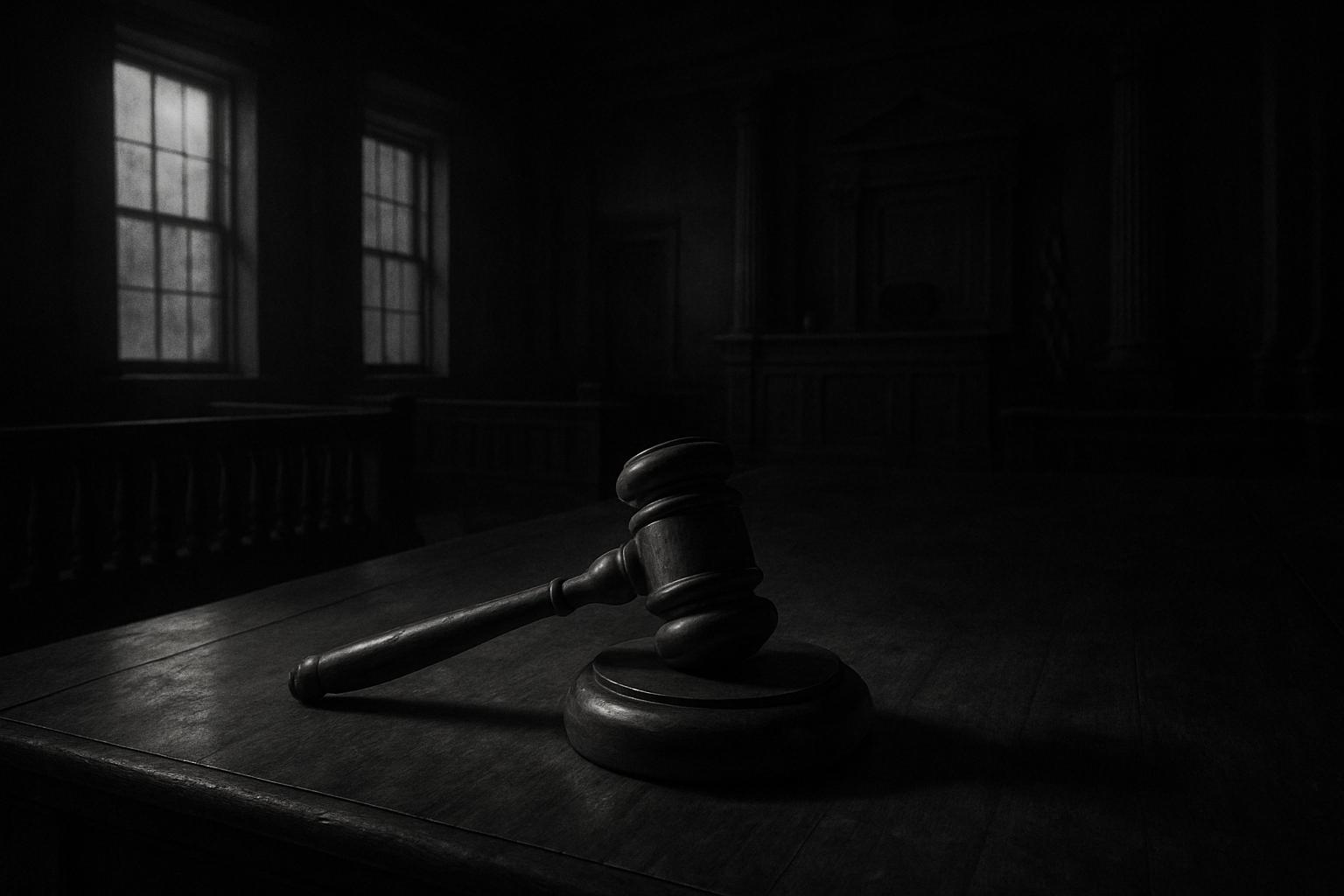The trial of two men accused of spying for China has been abruptly halted, raising significant concerns about political interference and national security in the UK. Christopher Cash, a parliamentary researcher closely linked with Conservative MPs, and Christopher Berry, an academic with extensive experience teaching in China, were each charged under the Official Secrets Act with passing information potentially useful to an enemy. The charges related to allegations of espionage between 2021 and 2023. The case, which was due to go to trial in October, collapsed after key witnesses were withdrawn, including one who was expected to testify that China should be classified as an 'enemy' of the UK.
The Crown Prosecution Service (CPS) cited an evidential failure as the reason for dropping the case, stating there was insufficient evidence to proceed. However, reports indicate that ministers from the Labour Party refused to support branding China as an enemy within the courtroom, undermining the prosecution’s ability to establish this critical point. This move appeared to contradict earlier assurances from the Conservative government that a senior civil servant and intelligence officials would provide evidence behind closed doors to protect their identities. The withdrawal of this support has sparked criticism from Downing Street and various Members of Parliament, who argue the decision leaves the UK vulnerable to foreign espionage.
Commons Speaker Sir Lindsay Hoyle expressed his dismay in interviews, warning that the fallout effectively grants Beijing "licence to operate" within the UK Parliament, particularly since the accused targeted the China Research Group of MPs. The research group was established to investigate China’s influence and is connected to Cai Qi, a senior aide to Chinese President Xi Jinping. Sir Lindsay emphasised the importance of securing the House of Commons against such foreign interference and called for urgent measures to close any security gaps exposed by this collapse.
The two men have denied any wrongdoing, with Cash’s lawyer asserting his innocence and questioning the validity of the initial arrest and charges. Meanwhile, Labour’s Dan Jarvis, the security minister, maintained that the decision to drop the charges was independent and should not be speculative. Nonetheless, the lack of transparency continues to fuel speculation over political motivations behind the CPS's choice to withdraw essential testimony, with Conservative MP Alicia Kearns raising serious questions about possible constitutional impropriety. She challenged Labour leader Keir Starmer to clarify whether the cessation was driven by public interest concerns or a broader political reluctance to confront Chinese espionage aggressively.
The shadow foreign secretary, Priti Patel, voiced alarm at the withdrawal of key witnesses, calling for greater openness from the government regarding its role in the case. A government spokesperson reiterated that the decision was made entirely by the CPS independently and stressed the UK’s commitment to national security, highlighting the recent introduction of the National Security Act as a strengthened legal framework to counter malign foreign activities.
Prime Minister Keir Starmer’s office expressed disappointment at the trial’s collapse, labelling the alleged espionage as "gravely concerning" and underscoring the importance of protecting British democracy from foreign interference. British intelligence agencies have recently intensified warnings about Chinese espionage efforts, reflecting growing concern about the scope and sophistication of such threats.
The Chinese Embassy dismissed the allegations as slander, denying any involvement in espionage activities linked to the accused individuals. The diplomatic fallout and the political turmoil surrounding the case spotlight enduring tensions between the UK and China on issues of security and sovereignty.
This case underscores the complex interplay between legal procedures, political considerations, and national security in the context of espionage accusations. It raises profound questions about the government’s capacity and will to confront foreign espionage and protect democratic institutions effectively.
📌 Reference Map:
- Paragraph 1 – [1], [2], [3], [4], [5], [6], [7]
- Paragraph 2 – [1], [6]
- Paragraph 3 – [1]
- Paragraph 4 – [1], [3]
- Paragraph 5 – [1], [6]
- Paragraph 6 – [1]
- Paragraph 7 – [1], [4], [6]
- Paragraph 8 – [1], [2], [3], [4], [5], [6], [7]
- Paragraph 9 – [1], [2], [6]
- Paragraph 10 – [1]
Source: Noah Wire Services
